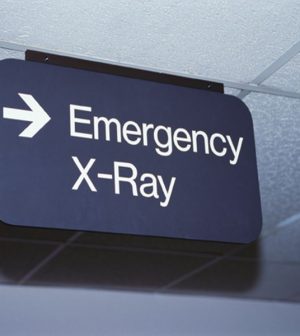- Could Your Grocery Store Meat Be Causing Recurring UTIs?
- Are You Making This Expensive Thermostat Error This Winter?
- Recognizing the Signs of Hypothyroidism
- 10 Strategies to Overcome Insomnia
- Could Artificial Sweeteners Be Aging the Brain Faster?
- Techniques for Soothing Your Nervous System
- Does the Water in Your House Smell Funny? Here’s Why
- Can a Daily Dose of Apple Cider Vinegar Actually Aid Weight Loss?
- 6 Health Beverages That Can Actually Spike Your Blood Sugar
- Treatment Options for Social Anxiety Disorder
A Kid-Friendly Emergency Room Saves Lives

Critically ill kids are far more likely to survive if they’re treated at hospital emergency rooms that are well-equipped to care for children, a new study finds.
Researchers analyzed data on more than 20,400 critically ill youngsters seen in ERs at 426 hospitals in Florida, Iowa, Massachusetts, Nebraska and New York state.
The risk of death was three times lower for those treated at ERs with greater levels of pediatric readiness.
Sometimes dubbed a “kid-friendly” approach, that readiness includes factors such as having equipment designed for use on children, child-specific protocols for care, and programs to keep doctors up-to-date on the latest guidelines in pediatric care.
Death rates for critically ill children were 11.1% at ERs with the lowest pediatric readiness scores and 3.4% at those with the highest.
“Our findings indicate that it matters which hospital a critically ill or injured child is brought to in an emergency,” said study co-author Dr. Jennifer Marin, associate professor of pediatrics and emergency medicine at the University of Pittsburgh School of Medicine.
The study was published Aug. 23 in the journal Pediatrics.
“Pediatric care requires specialized equipment, training and protocols to provide the best care to children. Obtaining that kind of preparedness is costly and time-consuming,” said senior author Dr. Jeremy Kahn, a professor of critical care medicine at Pitt’s School of Medicine.
“Our study suggests that efforts to better prepare hospitals to care for pediatric emergencies save lives,” he said in a university news release.
More information
The American Academy of Pediatrics has more on injuries and emergencies.
Source: HealthDay
Copyright © 2026 HealthDay. All rights reserved.










